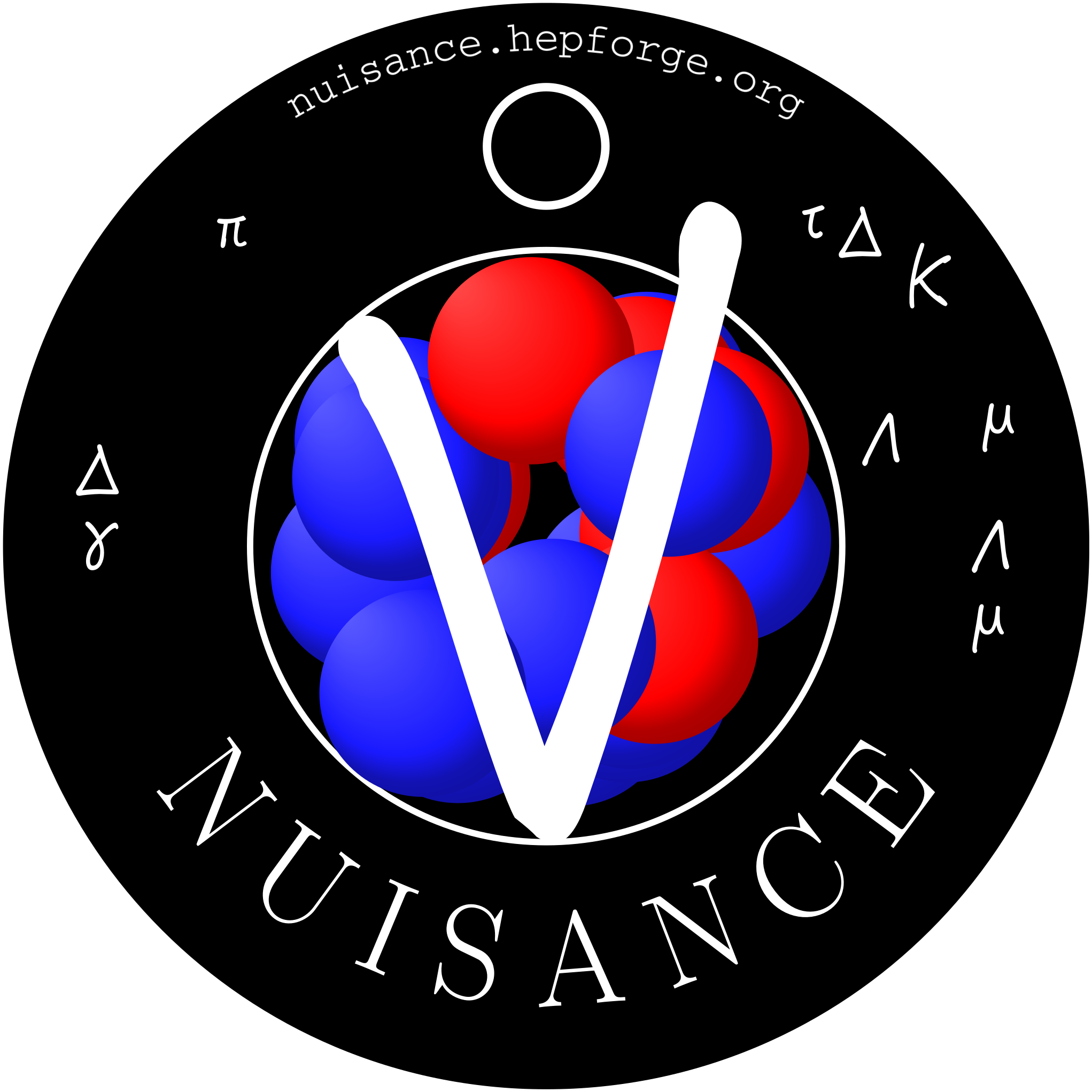Page BUILD Built
GENIE NUISCOMP
PAGE BEING BUILT
The NUISANCE minimizer application can be used to tune MC models by directly comparing with published scattering data and using ROOT's minimizer libraries to find a best fit parameter set.
Wiki content
-
Page BUILD Built
-
GENIE NUISCOMP
-
PAGE BEING BUILT
-
Running NUISMIN
-
Running a GENIE Minimization
-
Preparing Event Samples
-
Choosing our samples
-
Setting up our reweight dials
-
Running the minimiser (Migrad)
-
Analysing the output
-
Alternative Fitting Routines
-
Running GSL Minimiser Routines
-
Fixing dials at limits
-
Running a 1D likelihood scan
-
Running a 2D likelihood scan
-
Running a Contour Scan
-
Generating Post-fit Error Bands
-
Running a fake data fit
Running NUISMIN
Author: Patrick Stowell
Date: June 2017
Versions: NUISANCE v2r0, GENIE 2.12.6
The following example details how to run NUISANCE and tune a simple model to MiniBooNE_CCQE_XSec_1DQ2_nu data, with additional examples on how to include penalty terms and perform fake data fits.
Each generator requires very slightly different ways to handle NUISANCE, therefore multiple versions of this tutorial have been provided. Please use the following links to choose what generator you would like to use.
Running a GENIE Minimization
Preparing Event Samples
Choosing our samples
Setting up our reweight dials
Defining Free dials
Checking dial response
Specifying fixed dials
Running the minimiser (Migrad)
How Migrad works
Saving Nominal Prediction
Analysing the output
Data/MC Comparisons
Iteration Tree
Parameter Tuning Plots
Alternative Fitting Routines
Running GSL Minimiser Routines
Fixing dials at limits
Running a 1D likelihood scan
Running a 2D likelihood scan
Running a Contour Scan
Generating Post-fit Error Bands
Running a fake data fit
